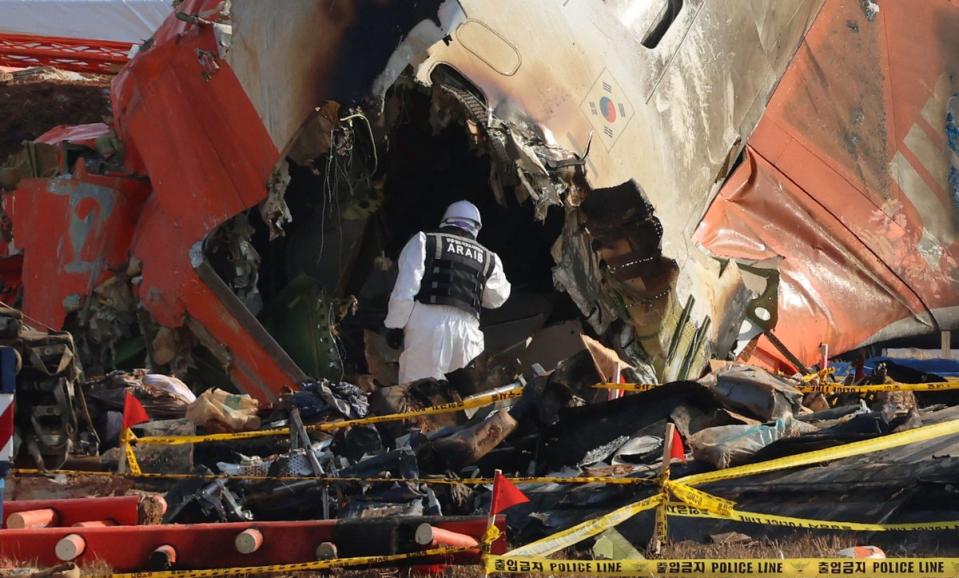Bird feathers have been found in an engine recovered from the site of the deadly Jeju Air flight which crashed-landedand killed 179 people in South Korea, investigators said.
The Boeing 737-800 skidded off a runway at Muan International Airport and hit a concrete fence, bursting into flames, on 29 December.
The cause of the disaster is under investigation, but video showed the plane having difficulty with the landing gear.
The pilot also received a warning from air traffic controllers about possible bird strikes and the plane issued a distress signal before the crash, investigators added.
ADVERTISEMENT
All of the victims were South Koreans except for two Thais, with many returning from Bangkok after Christmas holidays there.

Last week, investigators searched the offices of the airport operator and the transport ministry’s aviation authority in the southwestern county of Muan as the well as office of Jeju Air in Seoul, the South Jeolla provincial police said in a statement.
They planned to seize documents and materials related to the operation and maintenance of the aircraft as well as the operation of airport facilities, a police official told Reuters.
Authorities also banned the chief executive of Jeju Air from leaving South Korea. “The investigation team imposed a travel ban on two individuals, including Jeju Air CEO Kim E Bae,” police said.
The crash has prompted the South Korean government to order emergency inspections of all Boeing 737-800 aircraft operated by domestic carriers. Investigators are focusing on the landing gear, which appeared to have malfunctioned during the Jeju Air crash.

Jeju Air, facing significant public backlash, has seen a sharp drop in its stock value and over 60,000 flight cancellations.
ADVERTISEMENT
The tragedy has shaken South Korea, prompting the acting president to call for a comprehensive review of airline operations and airport safety infrastructure
Bereaved relatives held a memorial service at the site of the crash on New Year’s Day, laying white flowers and offering traditional rice cake soup in tribute to their loved ones.
They were bused to the site, where they took turns laying white flowers, knelt down and bowed deeply before a memorial table where food was placed. The food included “ddeokguk,” a Korean rice cake soup eaten on New Year’s Day.
EMEA Tribune is not involved in this news article, it is taken from our partners and or from the News Agencies. Copyright and Credit go to the News Agencies, email news@emeatribune.com Follow our WhatsApp verified Channel



